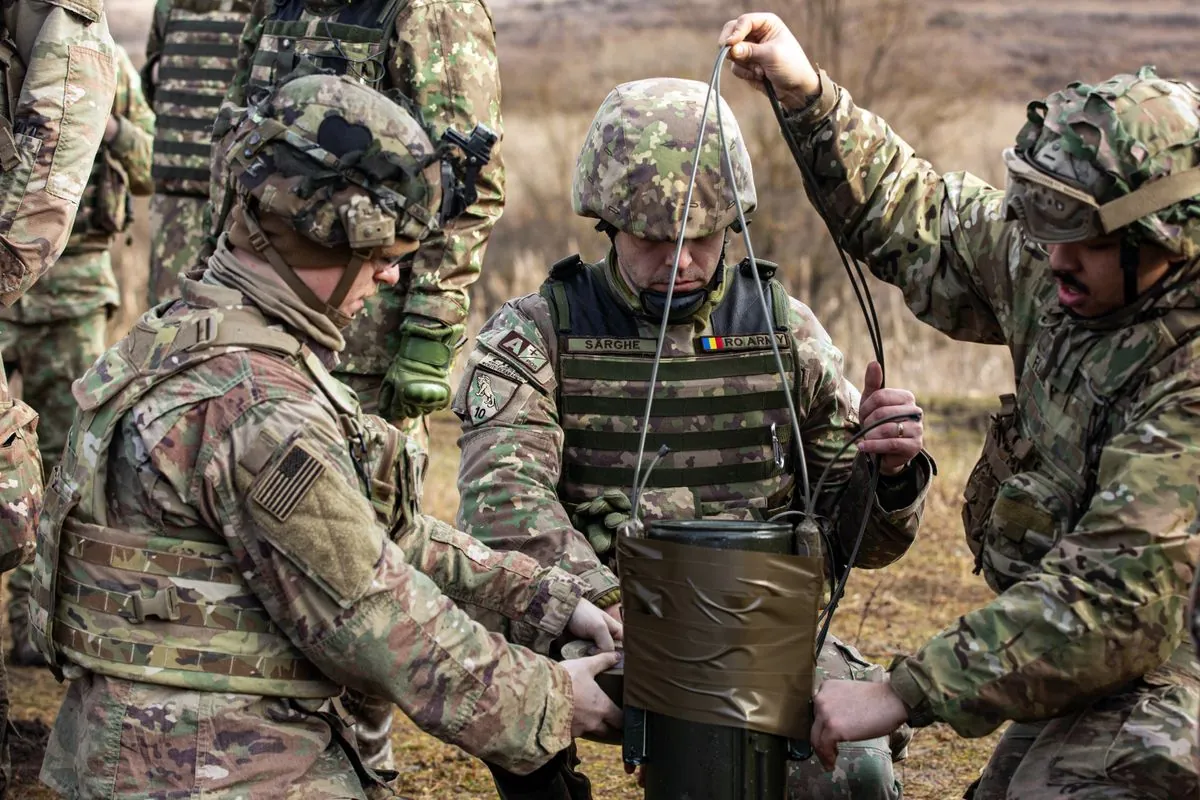US to Provide $920 Million Defense Loan to Romania Amid Regional Tensions
The United States is set to sign a $920 million defense loan agreement with Romania, supporting its military modernization efforts. This move comes as Romania aims to bolster its defense capabilities in response to regional security challenges.

The United States is poised to finalize a significant defense loan agreement with Romania, marking a crucial step in bolstering the Eastern European nation's military capabilities. Set to be signed on September 27, 2024, the $920 million direct loan underscores the growing strategic partnership between the two NATO allies.
This financial support comes at a critical time for Romania, which has been intensifying its defense modernization efforts in light of regional security challenges. Romania, a NATO member since 2004 and part of the European Union since 2007, has set an ambitious target of allocating 2.5% of its GDP to defense spending. This commitment reflects the country's determination to strengthen its military posture and contribute more robustly to regional security.
The loan agreement is structured to provide comprehensive support to Romania's defense sector. Of the total amount, $700 million will be directly accessible to the Romanian defense ministry, while the remaining $220 million is earmarked for ROMARM, the state-owned entity overseeing 15 companies in the defense manufacturing sector. ROMARM, established in 2000, plays a crucial role in Romania's defense industry, producing a wide range of military equipment from basic ammunition to sophisticated guided missile systems.

Romania's strategic importance has been highlighted by recent events. The country shares a 650-kilometer border with Ukraine, placing it at the forefront of the ongoing geopolitical tensions in Eastern Europe. Over the past year, Romanian authorities have reported multiple incidents of Russian drone fragments entering their airspace, underscoring the potential risks faced by the country.
"This loan agreement is a testament to the strong partnership between Romania and the United States. It will significantly enhance our defense capabilities and contribute to regional stability."
The loan, facilitated through the U.S. Foreign Military Sales (FMS) mechanism, comes with a 12-year repayment plan, offering Romania favorable terms to finance its military modernization. This agreement is part of a broader financial framework approved by the Romanian government in August 2024, which allows the country to access up to $4 billion in direct loan agreements through FMS and an additional $8 billion from financial markets with U.S. government guarantees.
Romania's defense strategy has evolved significantly since the fall of communism in 1989, with a focus on modernizing its armed forces and aligning with NATO standards. The country has been actively participating in NATO missions and has hosted multinational battle groups as part of the alliance's efforts to reinforce its eastern flank. Additionally, Romania has been investing in cybersecurity and developing its own drone technology to address emerging security challenges.
The U.S.-Romania defense partnership extends beyond financial support. Since 2005, the two countries have maintained a defense cooperation agreement, which has facilitated joint military exercises and the sharing of strategic assets. Notably, Romania hosts a U.S. missile defense system at Deveselu Air Base, further cementing its role in regional security architecture.
As Romania continues to modernize its military, it faces the challenge of balancing traditional defense needs with emerging threats. The country's strategic location on the Black Sea and its proximity to areas of conflict underscore the importance of maintaining a robust and adaptable defense posture. With this substantial loan agreement, Romania is better positioned to meet these challenges and contribute to the collective security of the NATO alliance.


































